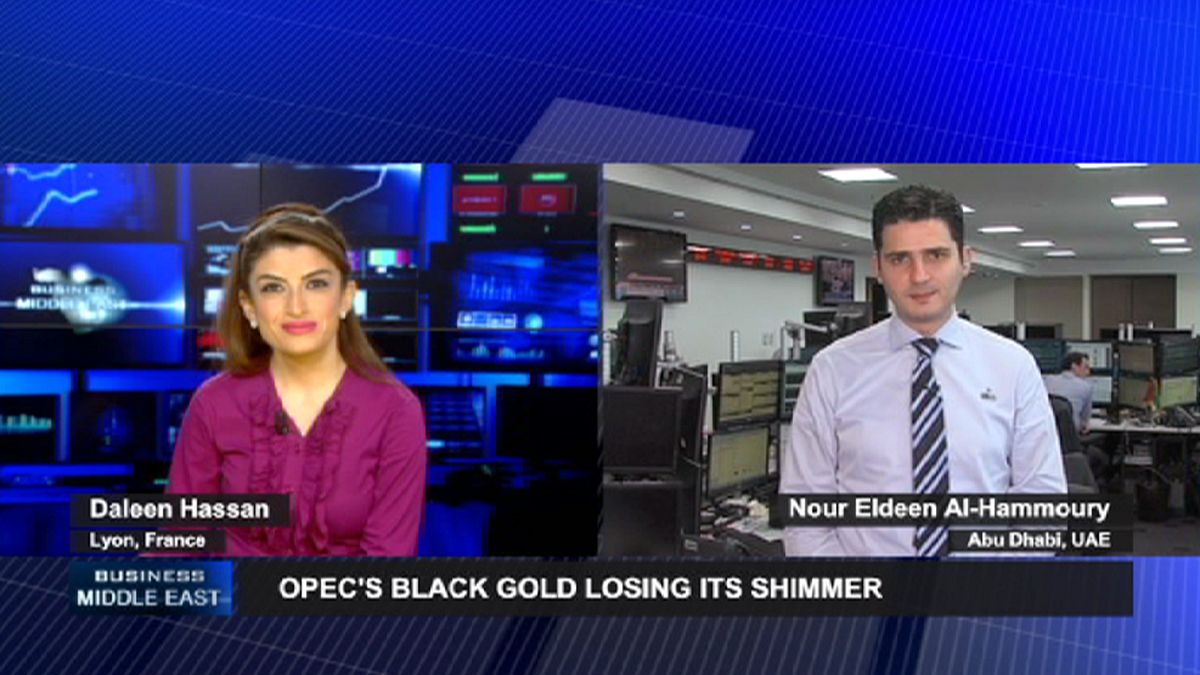After the latest OPEC meeting black gold lost some of its sheen as the producer cartel said it would not cut output to reverse a dramatic fall in prices. Gulf countries played a key role in that decision.
Producers and oil companies face further challenges from slowing economic growth leading to declining demand, along with rising production of US shale oil.
The question now is, can OPEC get what it wants from this policy of keeping prices low?
OPEC’s decision not to cut oil production heralds a new era.
Despite economic weakness, particularly in Europe and China, the oil ministers of its 12 member countries decided to keep pumping at the current 30 million barrels per day. As expected, crude prices promptly tumbled to their lowest in 5 years.
There was
a clear division at the OPEC meeting
. Countries such as Venezuela, Libya and Iran – who are hurting from low prices – favoured cutting output, while Gulf states, such as Saudi Arabia, the United Arab Emirates, and Kuwait, insisted it remain unchanged.
Saudi Arabia’s oil minister Ali al-Naimi convinced the others that OPEC is at serious risk of permanently losing market share to shale oil producers in the United States.
He believes the best way to fight back is by keeping prices low to undermine the US producers’ profitability as shale oil is more expensive to get out of the ground.
Rehana Mazahri, Euronews’ correspondent at the OPEC meeting in Vienna said: “it appears that Gulf Cooperation Council countries, led by Saudi Arabia, are ready to accept the sharp drop in oil prices by not reducing production, to achieve several objectives. “Some analysts say those objectives include the strong future financial returns that would come from raising their market share, as well as achieving certain political goals.
For more on what all that means Business Middle East’s Daleen Hassan spoke to*Nour Aldeen Al Hammoury*, chief market strategist at ADS securities:
DH
How low could crude oil prices go?
NAH
Last week close well below $65 in West Texas Crude and below $70 in Brent Crude looks very negative on the short and the medium term. With no intervention by the producers and the slowing down in the global economy, the prices are likely to decline further in the next few weeks. Meanwhile, $60 is possible in WTI crude and $65 in Brent is also possible.
DH
What are the potential scenarios for the oil market now?
NAH
Its data-dependent, further economic weakness from Asia including Japan and China in addition to weakness in Europe, all these factors are likely to keep the prices under pressure.
DH
Gulf countries seem relaxed,despite the falling prices, what plans do they have to cope with reduced income for what could be quite a long time?
NAH
For now yes, the Gulf area in specific has a decent reserves, therefore, declining oil prices won’t be a big issue on the short term. However on the longer term, the governments could be forced to cut the spending and to raise taxes. They are raising the export prices to Asia, which is another short term solution amid the current geopolitical tensions in the region.
DH
There are also political aspects in play here, what are they?
NAH
You can’t disconnect politics from oil prices, there are a lot of talks right now that the world is weighing on Russia through oil prices. You know, the decline in oil prices may force the Russians to revise their policies over what has happened in Crimea and Ukraine, so right now the decline could have some impact on the exporters in Russia. However, the main reason behind the decline in the oil prices is basically the slowing down in the global economy especially in China, Japan and Europe.



